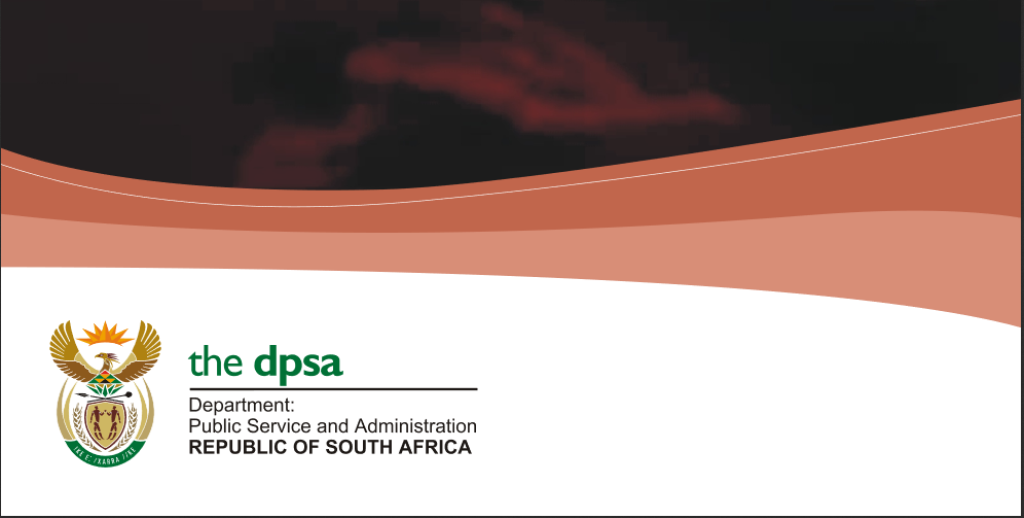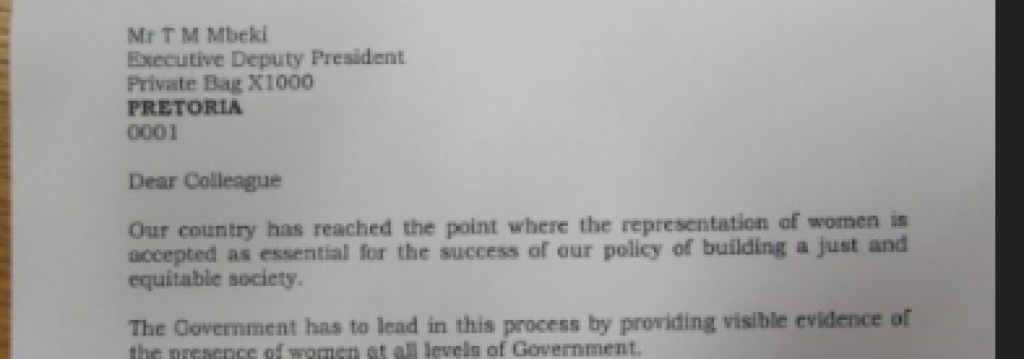Transforming the public service faced all the issues that the security services had to deal with, compounded by sheer scale and little preparation. Preparation only began in earnest only in late 1993 after agreement on the constitution. ‘When it came to the question of the public service,’ according to Zola Skweyiya, ‘there never was very much preparation on the side of the ANC.’438 Nor did the apartheid government side give it much thought.439 Compared with the planning and preparation for the security forces, the economy and international relations, the public service got little attention. Mandela was concerned that establishing a Government of National Unity would bring problems.440
The difficulties, some greater than others, arose in different ways out of the terms of the transition and the country’s history.
Negotiated arrangements to ensure stability and capacity from the start, achieved those goals but also had costs. Making the civil service more representative and bringing in people who understood and were committed to government’s mandate, proved cumbersome and slower than had been anticipated – and more expensive, given the cost of voluntary severance, pension packages and so on to ease the exit of officials from the previous order.


we had given the process of governance after democracy far, far too little attention, governance, not ruling

In the back of his mind the establishment of the state was an important thing that he thought had to happen
Advertising the posts of incumbent old order civil servants led to the first division in the Government of National Unity. The new ministry for public service and administration was hampered in driving transformation by the Commission for Public Administration which had, due to an ANC oversight when negotiating the interim constitution, retained its powers over control of all appointments to the public service. It was only in 1996 that the final constitution corrected this anomaly and the commission was replaced by the Public Service Commission.441

Lacking full powers to control appointments, and constrained by the Sunset Clauses where incumbent directors-general didn’t take the package offered to them, coping mechanisms were developed to ease senior people from the liberation movement into senior positions. Some started as advisors to ministers to work with directors-general, rather than as officials in civil service posts. Though intended to be a temporary measure, it became protracted and had the unforeseen effect, among other things, of developing parallel systems of authority.442

Let me take a step back and go to the question of the adviser-DG relationship
And although many of the old order managers were quite good at technical bureaucratic functions and helped keep administrative functions afloat, there was considerable mistrust, deriving as much as anything from the view that effective implementation depended on a senior management corps with good understanding of and commitment to the policies of the governing party. Part of the solution was to allocate more powers to ministers with regard to senior appointments and responsibility for the departmental establishments. This unplanned and transitional corrective measure became entrenched and in later years had negative implications for the professionalisation of the public service.443

..when the lines of accountability blur the distinction between the public service and its political masters....
Targets were set for a changed composition of the civil service management. The aim was: 50% black (African, Coloured and Indian) in five years (surpassed by 1999); at least 30% of new recruits to management should be women in five years (18% were women in 1999 and 30% in 2006); and at least 2% people with disabilities in ten years (the level remained well below the target).444
Mandela put particular urgency on the appointment of women, writing to ministers less than a month after the start of the new government:

Our country has reached the point where the representation of women is accepted as essential for the success of our policy of building a just and equitable society.
The Government has to lead in this process by providing visible evidence of the presence of women at all levels of Government.
I would, therefore, like to request you to prioritise the appointment of women to positions in Government departments, the Civil Service and standing committees.
Huge numbers were at play when the newly integrated civil service had to be rationalised and reduced to what was needed. The process also had to be negotiated with trade unions, which had been barred from the old public service until 1993. The pressures of the macroeconomic crisis complicated things still further. The minister of finance proposed reducing the 1,3 million civil servants by 300,000, a politically impossible number given the level of unemployment and the fact that the impact would fall mainly in the poorest areas of the country – the actual reduction was about half that number.446

Corruption was a factor that consumed resources and impaired the new government’s legitimacy in the eyes of citizens. The problem was most acute in, though not confined to, the former bantustan areas where patronage and lax oversight had been cultivated to maintain the apartheid government’s survival. Starting in the Eastern Cape and later the whole country, the government mounted action to deal with the problem, identifying ‘ghost workers’ and investigating abuse of pension funds and state financial resources.
In addition, the establishment of nine provincial administrations where previously there had been four provinces and ten bantustans relied greatly in rural provinces on former bantustan officials, importing institutional legacies with long-lasting adverse consequences.447

...formal reorganisation could not overcome the damaging institutional legacies of the apartheid era...
Mandela’s engagement with the transformation of the civil service was less direct than it was with the security forces. It was more a case of publicly articulating the vision of a public restructured and reoriented to serving the people and recognised by the people as their own public service; more representative of South African society, efficient, and effective, a public service that is a servant of the public.448
Achieving that ideal, however, required more give and take in overcoming obstacles that were beginning to make themselves felt. Mandela intimated as much during his second State of the Nation Address in February 1995, in words addressed to the public service without whose ‘dedicated service to the people effective government and public delivery to the population’ would be impossible.

We are committed to the motivation of all public sector workers so that they become a conscious, willing and skilled agent for the transformation of our society according to the objectives spelt out in the Reconstruction and Development Programme.
As part of this process, Cabinet has given instructions to all Ministers to interact continuously with all members of their ministries and departments to brief them about their tasks, to report on progress achieved, to agree on how to overcome obstacles to the process of transformation and generally to be involved in the struggle for change.
We have also invited the public sector unions to participate as fully as possible in the budgeting processes so that they make their own contribution to the difficult task of deciding the best possible allocation of the limited resources available to government.
We are convinced that an adversarial relationship between the executive and the administration would impact negatively on the common task which these two institutions share of serving the people of South Africa. Such an outcome must be avoided at all costs.
Accordingly, we have been available and willing to address all matters of concern to the public service workers, including questions of salaries, promotions, pensions and other issues relevant to working conditions.
It is however also important that the public service should be willing to join hands with the government to address other important matters such as the racial and gender imbalances within this service.
The public service will never be fully acceptable to the people as a whole and can never be truly responsive to the needs of the people unless it is composed in all its ranks in a manner that reflects the composition of our population.
To speed up this process, the government will continue to implement measures and programmes aiming at ensuring that those who were disadvantaged by apartheid in the past are given the capacity to catch up with those who were given the opportunity to develop and advance themselves in terms of management and other skills.
This is what we mean when we talk of affirmative action programmes. We speak of a human resource development programme which will ensure that all our people, and not merely some, are given the possibility to develop their talents and to contribute to the reconstruction and development of society to the best of their ability.
He concluded with a call to people ‘to refuse to listen to the false prophets who seek to perpetuate the apartheid divisions and imbalances of the past by presenting affirmative action as a programme intended to advantage some and disadvantage others on the basis of race and colour.449
By 1996, there was progress, but also challenge.

Yet, all this does not resolve some of the complex and immediate problems arising from the apartheid past. …
This government's mandate … is to establish a single, streamlined, efficient and transparent Public Service and to allocate more public resources to capital expenditure. Let us be frank and say that the current service is too large, and it has to be rationalised. There is no other option.
However, our actions cannot ignore the painful truth that the most affected will be areas that are poor, with low economic activity and little prospect for alternative employment. This means, among other things, searching for creative negotiated solutions that will help stimulate economic activity.
The rationalisation process will not be vindictive. Neither will it be carried out in a haphazard manner. Rather, it will affect all races and provinces. Discussion are well advanced with the relevant ministry to set up the Presidential Review Commission which will redefine the structure, functions and procedures of the Public Service, and relevant announcements can be expected soon.
